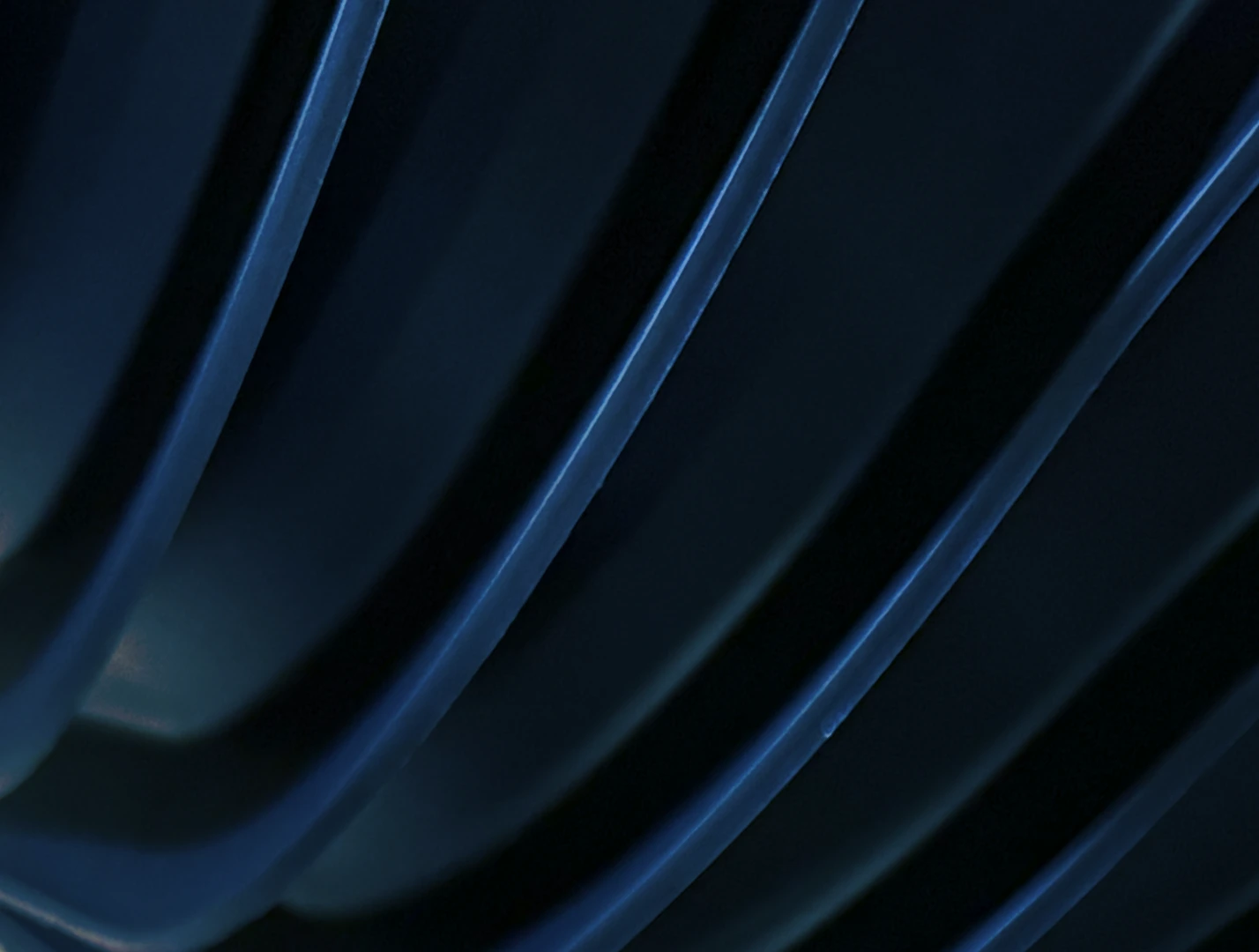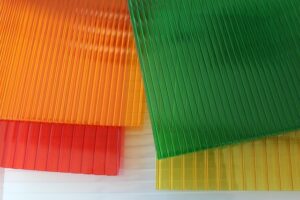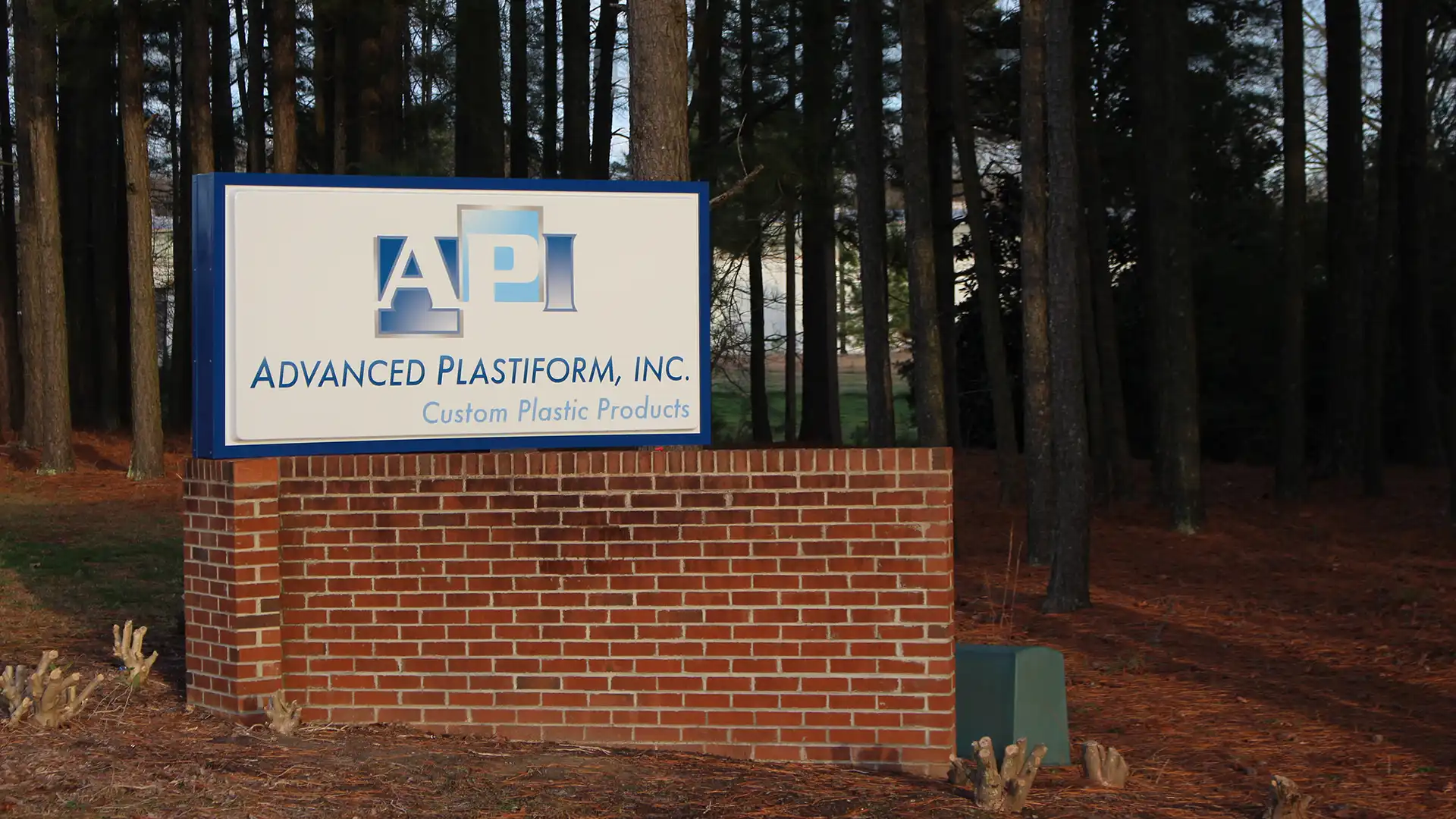Polycarbonate
Polycarbonate for thermoforming and injection molding plastic products, combining durability, precision, and proven success.
Custom Plastic Parts Manufacturing with Polycarbonate (PC)
To create long-lasting, custom plastic products that provide the qualities you need, whether it’s moisture resistance, impact resistance, or low electrical conductivity, using the right materials is essential. That’s why Advanced Plastiform, Inc. has a variety of high-quality thermoplastic polymers available, including polycarbonate. Also known as PC, polycarbonate is an adaptable thermoplastic that’s durable and pliable, able to be injection molded and thermoformed, depending on the project.
What Is Polycarbonate?
Known by the trademarked names Lexan, Makrolon, Makroclear, arcoPlus®, and others, polycarbonate is a widely used material in plastics manufacturing, often used when an impact-resistant alternative to glass is needed, such as lenses in eyeglasses, safety glasses, and sunglasses.
Polycarbonates are polymer groups that also contain carbonate groups within their chemical structures. Their structure also allows them to sometimes be transparent and naturally transmit light with precision to that of glass.
The stiff structure of this plastic comes from its two components, methyl groups, and phenyl groups. These groups act as a linear chain that is tightly bound together and add to the polycarbonate’s thermal resistance.
Polycarbonate Thermoforming
Polycarbonate thermoforming is a method of manufacturing that involves heating the plastic to a soft, flexible state, then fitting it around a custom mold or tool to create a desired shape. Because of the pliable nature of polycarbonate, we can use three methods of thermoforming, depending on the needed product.
Vacuum Forming
Vacuum forming is the most basic method where a high-powered vacuum is fitted between the plastic and the tool and the excess air is suctioned out. This pulls the plastic tightly against the shape. While it’s not ideal for plastics that require high levels of detail or sharp edges, it works well for large, curved pieces, such as windshields and windows.
Pressure Forming
We use pressure forming for large pieces of plastic that require the sharp edges and detailing vacuum forming can’t obtain, and, when we can, as an affordable alternative to injection molding. After the plastic is fitted to the tool, highly pressurized air presses against the plastic, pushing it firmly against the mold to achieve the desired shape, such as headlamp bezels on cars.
Twin-Sheet Forming
Twin sheet forming is the most complex method of polycarbonate thermoforming, requiring high levels of precision and care. Two sheets of plastic are heated and shaped at the same time, then lined up and fused together. In order to protect the integrity of the product, pressure points must be lined up exactly. We use twin sheet forming for double-walled or hollow products.
Polycarbonate Injection Molding
For small, solid plastics and highly detailed pieces, we use polycarbonate injection molding. The plastic is heated to its liquid state, then injected into a double-sided mold. While the upfront cost of injection molding is often higher than thermoforming, once the tool is designed and created, we can use it for as long as you need it, so if you have on-going orders planned or need high quantities of plastic pieces, the per-unit cost of injection molding is cost-effective.
What Is Polycarbonate Used For?
The main benefits of polycarbonate are that it’s transparent and can transmit light better than many kinds of glass, it offers excellent impact and shatter resistance, and it’s very pliable. While it has a low scratch-resistance, its other benefits, combined with a light weight means it’s often used to apply a hard coating to eyeglass lenses. Additionally, the most common uses for polycarbonate include:
- Cellphone frames and screens
- Electronic screen displays for televisions, monitors, and tablets.
- Shatterproof glass and bulletproof glass
- Windows and windshields in golf carts and other vehicles
- Safety glasses
- Data storage devices, including CDs and DVDs
To learn more, please visit our resource page on frequently asked questions about polycarbonate.
Contact Us to Learn More about Polycarbonate Plastic Manufacturing
Get expert design and polycarbonate plastic manufacturing when you contact Advanced Plastiform, Inc. We will work with you to design the products, parts, and components you need, from choosing the right materials to determining the best method of production. We proudly serve North Carolina, South Carolina, Pennsylvania, Maryland, Tennessee, Georgia, and Virginia.
to get started today, call us at 919-404-2080 or fill out our easy-to-use online contact form.



